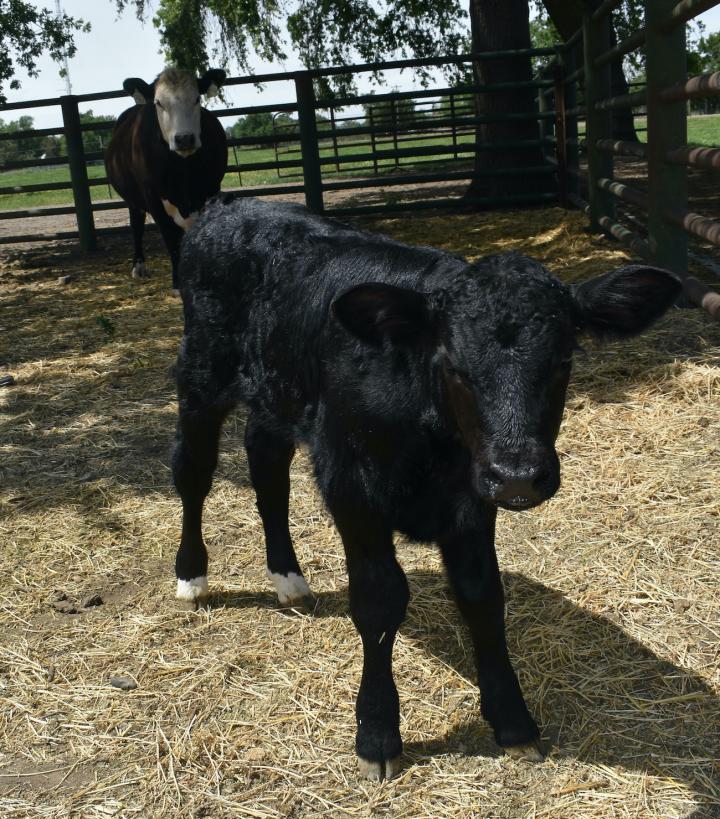Genetically Modified Bull Is Designed to Produce 75% Male Offspring

Cosmo, a 110-pound bull calf was born in April of 2020 at UC Davis. Scientists successfully genome-edited him as an embryo to produce more male offspring. CREDIT: Alison Van Eenennaam/UC Davis
Scientists at the University of California, Davis, have successfully produced a bull calf, named Cosmo, who was genome-edited as an embryo so that he’ll produce more male offspring. The research was presented in a poster today (July 23) at the American Society of Animal Science meeting.
Using the genome-editing technology CRISPR, researchers can make targeted cuts to the genome or insert useful genes, which is called a gene knock-in. In this case, scientists successfully inserted or knocked-in the cattle SRY gene, the gene that is responsible for initiating male development, into a bovine embryo. It’s the first demonstration of a targeted gene knock-in for large sequences of DNA via embryo-mediated genome editing in cattle.
“We anticipate Cosmo’s offspring that inherit this SRY gene will grow and look like males, regardless of whether they inherit a Y chromosome,” said Alison Van Eenennaam, animal geneticist with the UC Davis Department of Animal Science.
Widget not in any sidebars
Van Eenennaam says part of the motivation to produce more male cattle is that male cattle are about 15 percent more efficient at converting feed into weight gain. They are more fuel-efficient than females. Additionally, they tend to be processed at a heavier weight.
The SRY gene was inserted into bovine chromosome 17, which is a genomic safe harbor site. That ensures the genetic elements function predictably and don’t disrupt the expression or regulation of adjacent genes. Chromosome 17 was chosen after unsuccessful attempts to knock-in the gene on the X chromosome, which would have resulted in a bull that produced only male offspring. Cosmo is expected to produce 75 percent male offspring — the normal 50 percent XY animals, and another 25percent XX animals that inherit the SRY gene.
Cosmo will reach sexual maturity in a year, and he will be bred to study if inheriting the SRY gene on chromosome 17 is sufficient to trigger the male developmental pathway in XX embryos, and result in offspring that will grow and look like males.
As the Food and Drug Administration regulates gene-editing of animals as if they were drugs, Cosmo and his offspring will not enter the food supply.
Source:
University of California – Davis



